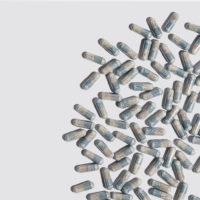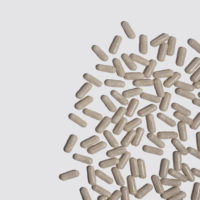How do supplements help to achieve a healthy lifestyle?

Food is your foundation and comes first as your primary protector. In a preventative medicine approach, supplements are a powerful yet complementary tool to up your wellbeing game. Vitamin C, Vitamin D, Vitamin E and Beta-carotene are, of course, known as essential keys to help the immune system and as antioxidants, yet a wide range of micronutrients, amino acids, essential fatty acids, fibers, plants, and herbal extracts can be taken to support and optimize specific physiological functions.
Supplements can play a crucial role for wellbeing and to reach optimal health. Genetic predispositions, lifestyle, diet and food quality, age and many others are all factors that affect your nutritional supplement needs. Let’s discover a bit more about them and about how nature offers an impressive high-diversity reservoir to answer to and exceed complex human needs.
The science of genetics and precise medicine provide us with amazing insights into genetic and metabolic variability between individuals. Some people need, for example, higher consumption of vitamins, minerals and plants with antioxidant and detoxifying properties. Others have a genetic predisposition for chronic vitamin D deficiency, therefore the daily intake of this vitamin might be different for such individuals.
Lifestyle-related factors including smoking status, exercise level, dietary habits can also play a role. In the case of a person performing high endurance sports, this induces significant oxidative stress at cellular level and accelerates the aging processes. The requirements of certain vitamins with antioxidant and anti-inflammatory properties in these individuals are much higher compared to healthy individuals of the same age.
Speaking about aging, our capacity to assimilate nutrients in our digestive system decreases with age. A targeted nutritional evaluation and meal management can be adopted to enhance absorption but won’t be 100% effective. Advanced supplement technologies can bring fundamental assets to it, by optimizing bioavailability and reflecting true ingredient identity to deliver optimal health benefits.
The nutrient content of our meals and the way we eat have also radically changed. The quality of food has evolved over time. Poor soils, lower nutritional density and presence of chemical contamination (pesticides, heavy metals, etc) might trouble the idealistic picture of the healthy eating dish. In addition, food manipulation and aggressive cooking processes may induce considerable nutrient loss or degradation. While choosing and eating high-quality foods featuring minimally processed items such as vegetables and fruits, whole grains, healthy fats and healthy sources of protein is highly recommended and is part of a smarter nutrition that health-conscious people try to follow today, this may be a challenge in our modern lives. Eating choices are largely influenced by what’s available and by the constraints of our busy lives. Nutritional supplements can hence be an interesting complementary source of highly bioavailable nutrients and protective phytochemical supply.
Moreover, nature and plants offer unique high-diversity natural compounds, that we won’t be able to find in our daily meals. Due to their biodiversity, plants are the largest source of compounds that has ever existed (scientists think that less than 1% of this vast biodiversity has been exploited so far!). Just to name a few: Ashwagandha, Curcuma, Astragalus, spirulina or Shiitake extracts are all plant-based ingredients that are a rich source of structurally diverse bioactive compounds that can help achieve effective benefits and optimal body balance.
To sum up: because of our body complexity and specific nutritional requirements, a nutrient-dense diet in association with strategic micronutrients and plant extract formulations could help to deliver unique solutions with specific benefits for the body. A complementary nutraceutical would be recommended in order to benefit from these interesting and nature-infused health effects.
 CART (0)
CART (0)


